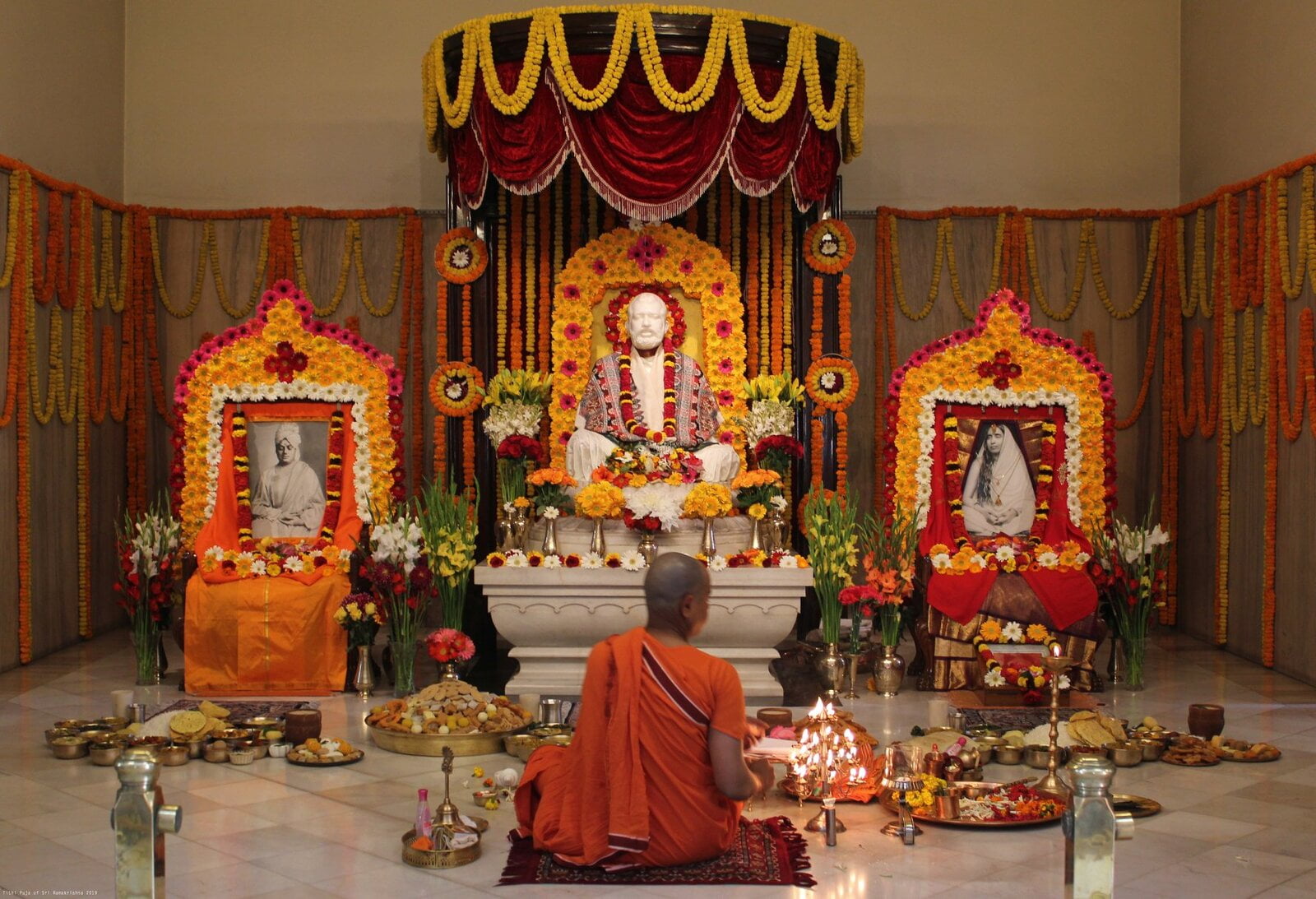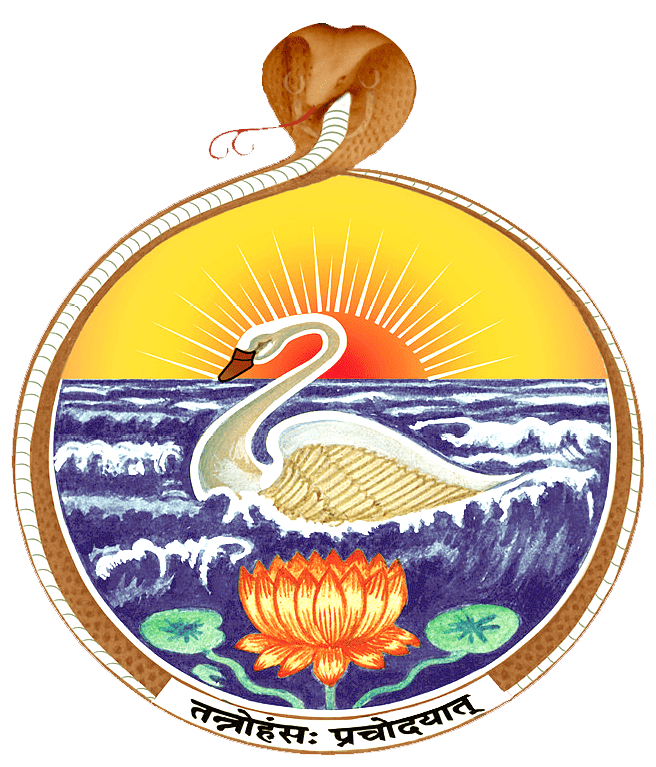Worship and Celebrations
The temple of Sri Ramakrishna is the heart of the Ramakrishna Mission

Daily worship of Sri Ramakrishna, evening prayers, Vedic chanting on special occasions, ‘Ramanama Sankirtanam’ on Ekadashi days after evening arati and prayers are held in the temple of Sri Ramakrishna.On the birthdays of each direct disciple of Sri Ramakrishna, excerpts from the disciple’s life and teachings are read in the temple after evening arati. Regular discourses and expositions on scriptures and deliberations on allied topics are conducted by the Secretary and occasionally by guest speakers on Sunday evenings, except in the months of May, June and part of July. Discourses on Sri Ramcharit Manas are held on Saturday evenings. Religious discourses are held on Sri Ramakrishna The Great Master (English) every Friday morning and on Sri Ramakrishna Kathamrita (Bengali) every Wednesday evening except during summer. A calendar of Annual Celebrations held in the Mission is available at the office.
